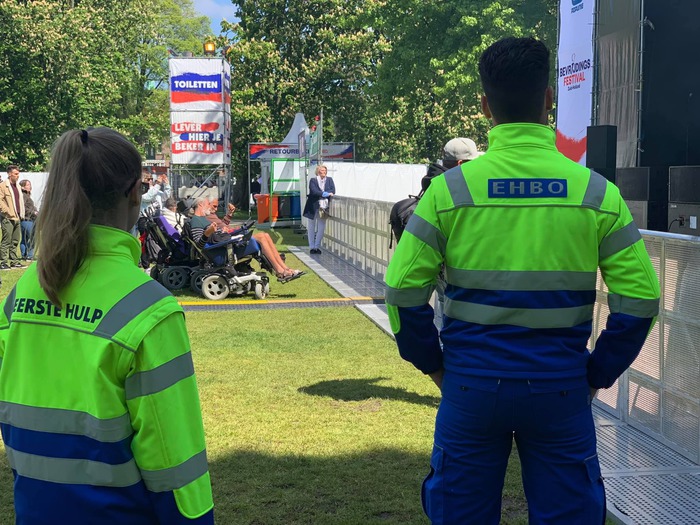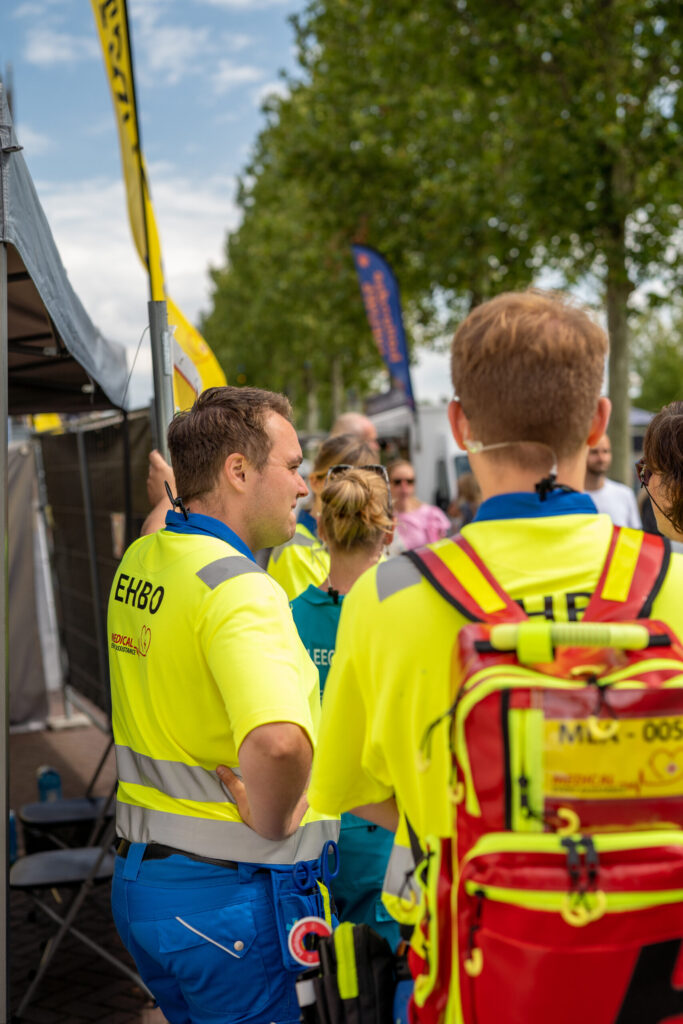Customized Care for Low-Risk Events
Basic First Aid
This level of care is specifically developed for events that are classified as low risk according to the National Guide for Medical Advisory on Public Events (LHGAP). The LHGAP is a guideline that assists in determining the necessary medical care at events, taking into account factors such as the number of attendees, the nature of the event, and the location.
Our basic first aid providers are well-equipped to respond quickly and effectively to common incidents at events, such as:
- Minor injuries (cuts, abrasions)
- Mild burns
- Simple sprains or bruises
- Heat exhaustion or dehydration
- Allergic reactions
All deployed basic first aid providers hold valid certifications in accordance with the standards of the Orange Cross or other recognized training institutions. This ensures that they possess the most up-to-date knowledge and skills in first aid.
Our first aid providers are regularly retrained and drilled in specific scenarios that may occur during events. This ensures that they are not only proficient in general first aid but also well-prepared for the unique challenges that events can present.
By choosing our basic first aid services, you are assured of:
- Professional care that meets all legal requirements
- Providers with experience in the dynamics of events
- Flexible deployment tailored to the specific needs of your event
- Peace of mind for both organizers and attendees
Would you like to learn more about how our basic first aid services can make your event safer? Contact us for a free consultation.


Keep informed!
Medical Event assistance
More services
From basic first aid to specialized emergency care, we offer appropriate medical support for every event.
Events first aid
Medium to high risk events according to LHGAP and field standard. Extensive connection to regular care chains, extra competencies in methodical action, cooperation and communication.
Nursing basic care
Non-specialized nurses support other care levels. Prioritize care and assist healthcare professionals. Also includes BMH, doctor's assistant, caring-IG and ambulance driver.
Nursing emergency care
Healthcare professionals from acute somatic care start emergency care until takeover by ambulance or specialized emergency care. Under responsibility of doctor or MME protocol.
Nursing Specialist Emergency Care
Independently qualified healthcare professionals at the level of National Ambulance Care Protocol. Under Medical Manager for expected threat to vital functions or serious injury.
Basic/Specialist Emergency Care Physician
Physicians provide specialized care as needed. Not always at the level of Specialized Emergency Care. Expertise of general practitioners, sports physicians and other specialists offers added value.
